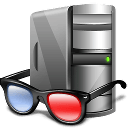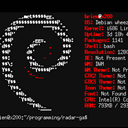Top DirectX Diagnostic Tool Alternatives for System Troubleshooting
The DirectX Diagnostic Tool (DxDiag) is a valuable utility for testing DirectX functionality and troubleshooting video or sound-related hardware issues. It allows users to generate comprehensive scan results in text files, often shared with tech support for diagnosing problems related to hardware failure or incompatibility. However, for users seeking more advanced features, cross-platform compatibility, or a different user experience, exploring a robust DirectX Diagnostic Tool alternative is a great idea.
Top DirectX Diagnostic Tool Alternatives
While DxDiag serves its purpose well, a variety of powerful system information and diagnostic tools offer enhanced features like real-time monitoring, benchmarking, and broader platform support. Here are some of the best alternatives:

Speccy
Speccy is an excellent DirectX Diagnostic Tool alternative, offering an advanced system information tool for your PC. Available as a freemium product for Windows, it provides a quick scan of your machine and includes features like Temperature Monitoring, Hardware Monitoring, and is available in multiple languages, making it a comprehensive choice for detailed system insights.

HWiNFO (32/64)
HWiNFO (32/64) is a free hardware diagnostic software for Windows that serves as a robust DirectX Diagnostic Tool alternative. It provides real-time monitoring for temperature and more, with features like Fan speed control, support for S.M.A.R.T. data, and detailed System Info, making it ideal for in-depth hardware analysis.

AIDA64
AIDA64 is a commercial DirectX Diagnostic Tool alternative that offers a complete set of tools to benchmark, overclock, monitor, fine-tune, and troubleshoot Windows-based desktop and mobile computers. Its extensive platform support, including Android and iOS, alongside powerful Hardware Monitoring and System Info features, makes it a top-tier choice for advanced users.

Neofetch
Neofetch is a free and open-source command-line DirectX Diagnostic Tool alternative, written in bash 3.2+. It displays information about your operating system, software, and hardware in an aesthetic way across Mac, Linux, Android, and other platforms. Its command-line interface and system info capabilities make it a unique choice for developers and power users.

SIW
SIW (System Information for Windows) is a commercial DirectX Diagnostic Tool alternative that gathers detailed information about your system properties and settings. Available for Windows and as a portable app, it provides extensive Hardware Monitoring and System Info, presented in an extremely comprehensive format.

Hardinfo
Hardinfo is a free and open-source DirectX Diagnostic Tool alternative specifically designed for Linux. It provides detailed system information, including hardware, environment, and kernel details, and can utilize lm_sensors and ACPI for temperature and fan speed data, making it an excellent choice for Linux users.

Screenfetch
Screenfetch is a free and open-source command-line DirectX Diagnostic Tool alternative that elegantly displays your distro's logo in text art along with OS, kernel, CPU, GPU, RAM, DE, and resolution information. It’s available for Mac, Linux, and Chrome OS, perfect for quick system overviews in the terminal.

Hardware Lister
Hardware Lister (lshw) is a free and open-source DirectX Diagnostic Tool alternative for Linux. It's a small tool that provides detailed information on the hardware configuration of the machine, including exact memory configuration and firmware details, presented in a clear tree view structure.

SIV - System Information Viewer
SIV (System Information Viewer) by Ray Hinchliffe is a free personal DirectX Diagnostic Tool alternative for Windows. It's a general Windows utility that displays a wealth of useful Windows, Network, and hardware info, including CPU and PCI details, offering a comprehensive overview of your system.

Sysinfo
Sysinfo is a free and open-source graphical DirectX Diagnostic Tool alternative for Linux. It's designed to display hardware and software information about the computer it's run on, recognizing details about various components, making it a user-friendly option for Linux users seeking system insights.
Whether you're a casual user or a seasoned IT professional, exploring these DirectX Diagnostic Tool alternatives can provide you with more granular control, real-time insights, or cross-platform compatibility for your system troubleshooting needs. Evaluate each option based on its features, supported platforms, and your specific requirements to find the best fit for your workflow.